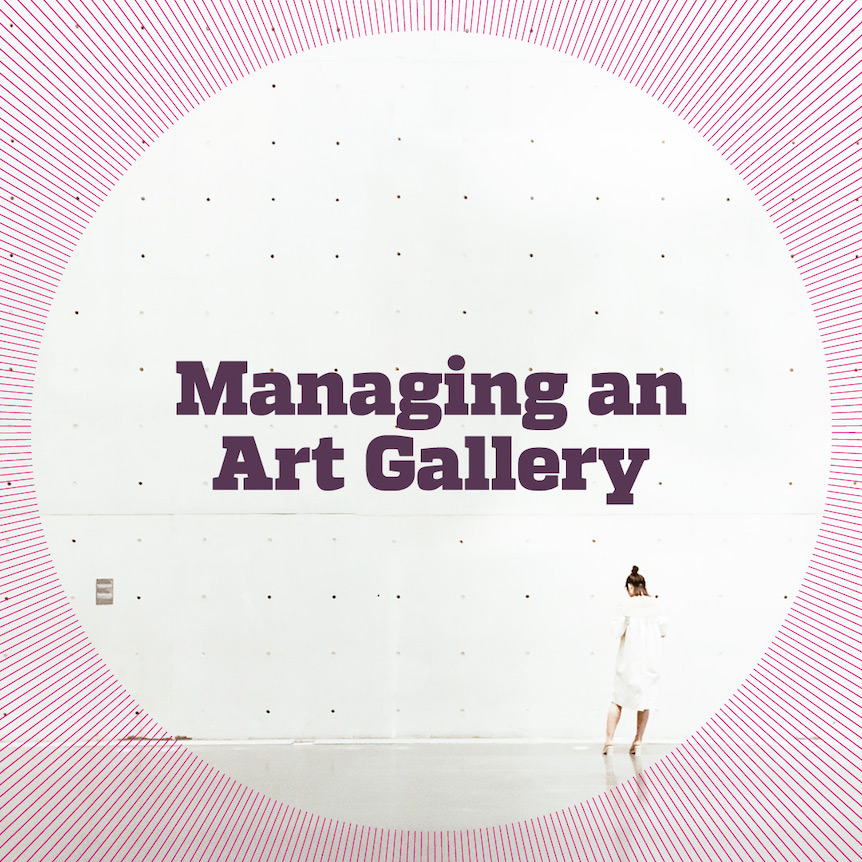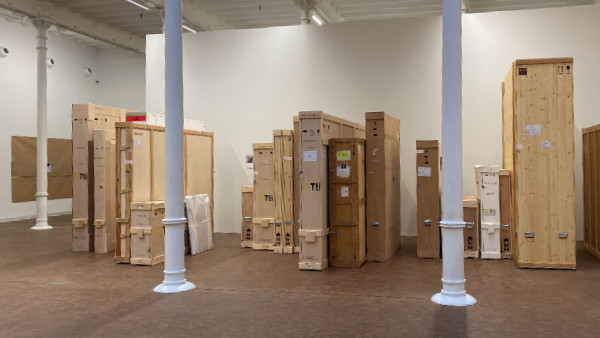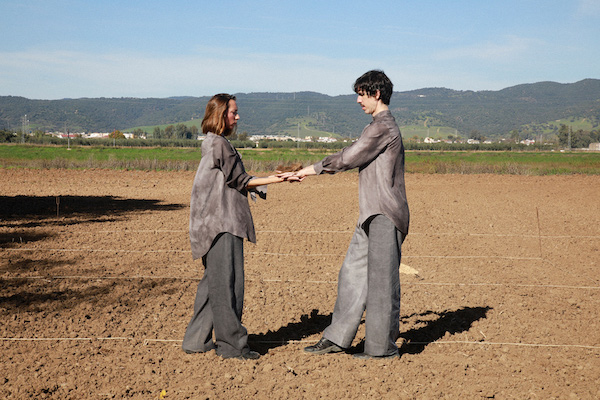Online course by Node Center with Doris Friedl
Duration: Jan 15 – Feb 5, 2020
Fee: 154€
Max seats: 30
Enroll before: Jan 11, 2020
Dedication: 3 hrs/week
DECEMBER SPECIAL! -15% off all our courses. Discount code: XOXO19
Whether you want to run a small commercial art space or a large international business, gallery management requires a wide spectrum of strategic, administrative and creative skills. The manager is the person in charge of the success of the gallery both in its artistic development and in its financial prosperity. This course offers a practical approach to how a commercial gallery functions and will give you the fundamental knowledge to successfully develop and manage one yourself.
The program delves into the main tasks of a gallery manager and the different aspects of gallery operations. First, we will start with strategies for developing your business identity and explore the relationship between the gallery and its pool of artists. Second, we will analyse the role of marketing and how it can be mobilised for greater success in selling. In the third session, we will go through the core of office organisation including daily administration and maintaining an inventory. Finally, we will focus on the logistical tasks under the manager’s supervision: from artwork production to its delivery to the client.
Following this course you will gain a full understanding of what makes a successful and flourishing business. We will also learn from common mistakes so that you can establish a reputable and long-lasting art gallery.
- Introduction to the program and course overview.
- Short definition of commercial gallery and examples of different models
- Defining the gallery’s identity and mission statement
- Creating, developing and maintaining a pool of artists.
- Choosing the artists: coherence and complementarity
- Building a trustful relationship
- Role of the gallery toward its artists
- Support in exhibition planning, museum relation and production
- From representative agent to personal coach
- Determining commission between artist and gallery
- Engagement of the artist toward the gallery
- Regular production of artwork
- Response to client’s requests
- Exclusivity or priority in the allocation of new works
- Promoting your artists
- Advocating for institutional exhibitions and project-based opportunities
- Building networks with further galleries and artists
- Marketing, publicity and advertising
- Relationship to press
- Online platform and newsletters
- Advertising in art magazines
- Public relations and sales
- Setting prices for artists and artworks
- Clients database
- Types of collectors
- Personalized offers
- Art fairs: gaining new markets, cultivating and extending a network
- Administration: what happens behind the scenes
- Coordination, project management
- Loan and artists’ contracts
- Fair planning
- Travel planning
- Staff management
- Accounting
- Control of financial resources
- Main tasks of the bookkeeping
- Archive
- Collecting and recording exhibitions’ documentation: press coverage, visuals, publicity.
- Providing an up-to-date database to press and institutions
- Inventory system
- Controlling and documenting location and status of works
- Recording production costs
- Production support
- Intermediary between artists and production companies
- Installing the works
- Packaging and crating
- Transport
- Art shipping and insurance
- Customs
- Storage
- Check-in and check-out system
- Conservation
- Client delivery
- Physical delivery
- Set up instructions and maintenance
- Certificate











